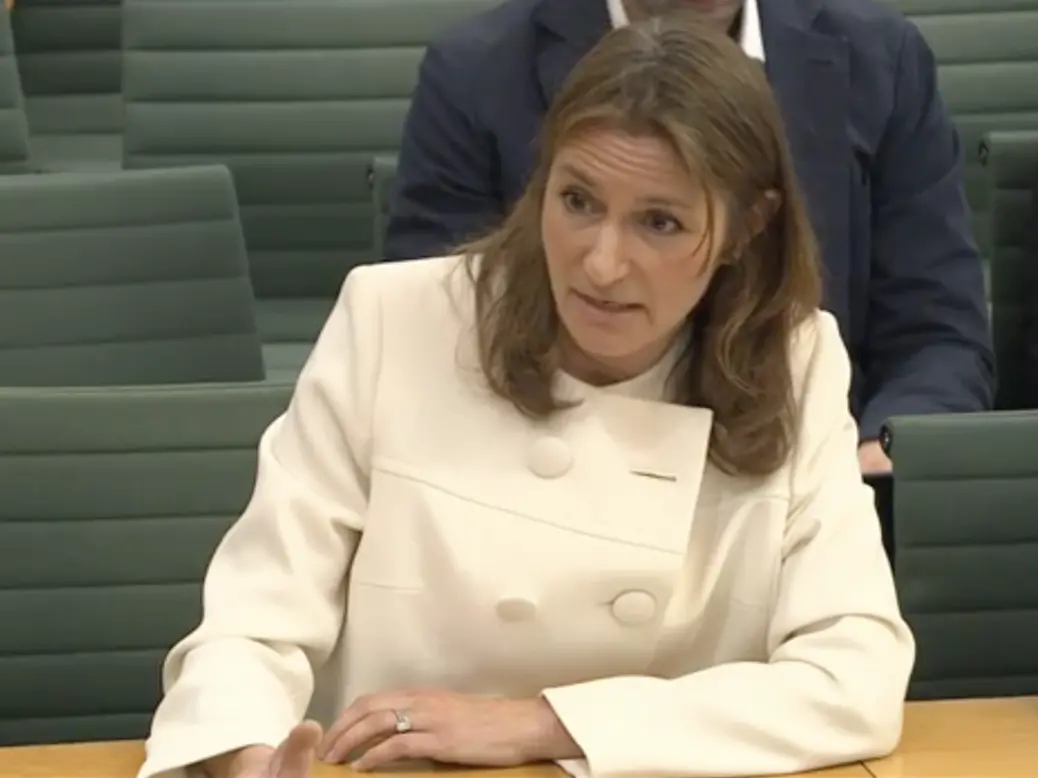
UPDATE: GB News begins ‘formal legal process’ to challenge Ofcom rulings
The Culture Secretary has backed Ofcom after it warned GB News that it faces sanctions including a possible fine after repeatedly breaking the Broadcasting Code.
Questioned by MPs on the Culture, Media and Sport Committee on Wednesday Lucy Frazer was asked about a recent finding by the broadcasting regulator, which found that the People’s Forum: The Prime Minister broke impartiality rules.
The watchdog said this week it was starting the “process for consideration of a statutory sanction against GB News” following a “serious and repeated breach” of the rules and the hour-long programme where Rishi Sunak took questions from the audience.
Frazer told the committee: “I think that Ofcom is doing its job in terms of making sure that the Broadcasting Code is complied with.”
Asked if the media regulator had been “tolerant” of GB News, Frazer appeared to defend Ofcom, saying that it has “found various breaches” of the channel.
“I would say Ofcom is doing its job,” she added.
Frazer accused of failing to express view on treatment of journalists by Israel
During a robust exchange with SNP MP John Nicolson, Frazer was accused of taking five minutes to not express a view on the treatment of journalists by Israel.
Nicolson told the Culture Secretary: “I can’t find you on the record anywhere condemning Israel for locking journalists out of Gaza.”
Frazer defended her record, saying that she has done “a number speeches” that mentioned the deaths of journalists in Gaza.
Nicolson asked if Frazer shared his “shock” about the situation, and the Culture Secretary said she was “very keen” to go to Israel.
Nicolson added: “It’s not a question of you having to be on the ground. In Israel, you don’t have to go to Israel to have a belief in the principle of independent journalism, you can’t visit every country in the world to do an on-the-ground report.”
Frazer said she wanted to “look at evidence”, and Nicolson fired back saying that if “journalists are locked out of Gaza, you can’t look at the evidence, by definition”.
“I will stand up for those who are unable to do that,” Frazer replied.
“I would like to, if you’re putting something to me. It’s my job to assess the evidence. That is not a matter on which I have assessed the evidence. But I would be very interested to do so.”
Sky News correspondent Alex Crawford earlier this month criticised Frazer and the prime minister for giving speeches about the issue without any action. She said: “Listening to Rishi Sunak and the Culture Secretary doing stirring speeches about how they’re defending media freedom, [how] we’re so important as journalists… those are empty words without any action. They’re really empty… There is no political pressure from key allies of Israel to try and get foreign journalists in.”
Nicolson continued: “The committee will note that you’ve been given more than five minutes to express a view on whether Israel should lock journalists out of Gaza and you’re choosing not to answer that question.”
Frazer responded: “If that is the case, it is wrong. But I would like to look at the evidence.”
Culture Secretary: BBC ‘made an error’ by not referring to Hamas as terrorists
Frazer also told MPs the BBC “made an error” by not referring to Hamas as terrorists in its coverage of the war with Israel.
She said: “We discussed during that meeting that the BBC did not refer to Hamas as terrorists, it was a matter that I had called the BBC out on publicly.”
Frazer also said: “I think the BBC made an error… which I have been very public about, in refusing to recognise the term ‘terrorists’.”
The BBC’s current policy is that Hamas is described as a proscribed terrorist organisation.
On the subject of BBC impartiality, Frazer said the corporation “has more work to do.”
She said: “What I’m saying isn’t controversial, the BBC needs to be impartial and I think that it isn’t always impartial and that is something the director-general and the BBC accepts and this is one of their priorities and they say more work needs to be done.”
She added: “I do think the BBC has more work to do on impartiality and I think the BBC absolutely accepts that.”
Asked if the BBC has a “special burden” on impartiality that other branches of the media do not have, she told MPs: “All public service broadcasters have particular duties, the BBC is special because it is governed by the charter and under the charter is has particular responsibilities and it’s governed by the charter because it’s funded by the taxpayer.”
Email pged@pressgazette.co.uk to point out mistakes, provide story tips or send in a letter for publication on our "Letters Page" blog
